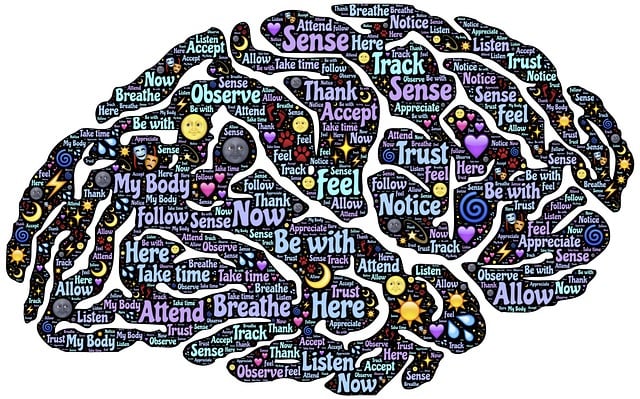Englewood German Speaking Therapy revolutionizes mental health care through accurate diagnoses tailored to the unique cultural and linguistic needs of the German-speaking community. Employing evidence-based practices, compassionate dialogue, and specialized services, they address barriers in traditional healthcare. Their holistic approach combines advanced assessment tools with culture-specific treatments and self-care education, improving patient outcomes and fostering mental well-being. By prioritizing cultural competence and inclusive practices, Englewood sets a standard for effective, accessible, and sensitive mental health care.
Mental illness diagnosis accuracy is a critical aspect of patient care, with improvements being continually sought. This article delves into the multifaceted challenges surrounding mental health assessments and explores strategies to enhance diagnostic precision. We examine the unique role of Englewood German Speaking Therapy in providing culturally sensitive treatment, focusing on its expertise and approach. Additionally, innovative techniques and the importance of cultural competence in ensuring accurate diagnoses are discussed, shedding light on advanced practices for better patient outcomes.
- Understanding the Challenges of Mental Illness Diagnosis
- The Role of Englewood German Speaking Therapy in Enhancing Accuracy
- Innovative Approaches to Improve Diagnostic Accuracy
- Ensuring Cultural Competence and Inclusive Practice
Understanding the Challenges of Mental Illness Diagnosis

Diagnosing mental illnesses accurately can be a complex task due to the diverse nature and often subtle symptoms presented by individuals seeking help. This complexity is further compounded by the fact that mental health conditions frequently coexist, making differential diagnosis a challenging endeavor. The process may involve extensive assessments, including clinical interviews, psychometric testing, and sometimes, rule-out procedures to ensure an accurate identification of the underlying condition(s).
Englewood German Speaking Therapy recognizes these challenges and leverages evidence-based practices such as compassion cultivation and positive thinking, grounded in Mind Over Matter principles, to enhance diagnostic accuracy. By fostering open dialogue and creating a safe space for individuals to share their experiences, therapists enable more nuanced understanding, leading to tailored treatment plans. These efforts are crucial in ensuring that those facing mental health struggles receive the most effective care.
The Role of Englewood German Speaking Therapy in Enhancing Accuracy

Englewood German Speaking Therapy plays a pivotal role in enhancing the accuracy and effectiveness of mental illness diagnoses. By offering specialized services tailored to the unique needs of German-speaking individuals, this therapy bridge the cultural gap often present in mainstream mental healthcare. This is particularly crucial given the nuances and complexities that can arise from language barriers and cultural differences. Therapists at Englewood are trained not only in clinical practices but also in cultural sensitivity, ensuring a holistic approach that respects individual backgrounds and experiences.
Through innovative techniques that combine Social Skills Training with culturally responsive care, Englewood German Speaking Therapy helps clients manage and overcome conditions like anxiety, improving their overall well-being. This dual focus not only enhances diagnostic accuracy by providing a deeper understanding of each patient’s context but also promotes better compliance with treatment plans. Ultimately, this specialized therapy contributes to improved mental health outcomes for German-speaking individuals seeking support in a familiar linguistic and cultural environment.
Innovative Approaches to Improve Diagnostic Accuracy

In the quest for enhanced mental illness diagnosis accuracy, innovative approaches are reshaping the landscape of therapy. One such pioneer is Englewood German Speaking Therapy, which leverages advanced psychological assessment tools and evidence-based practices tailored to diverse cultural backgrounds. By integrating cutting-edge technology with traditional therapeutic methods, this approach ensures a more nuanced understanding of patients’ symptoms and experiences.
Complementing these efforts, the Mental Wellness Podcast Series Production plays a significant role in disseminating knowledge and raising awareness about mental health. Through engaging content that spans various topics related to inner strength development and self-care practices, these podcasts empower individuals to take proactive steps toward maintaining and improving their mental wellness. This multifaceted approach, combining advanced diagnostics with educational resources, promises to revolutionize how we perceive and treat mental illness, ultimately leading to more accurate and effective interventions.
Ensuring Cultural Competence and Inclusive Practice

In efforts to enhance mental illness diagnosis accuracy, a significant aspect involves ensuring cultural competence and inclusive practices within therapeutic settings. This is particularly crucial in diverse communities where individuals from different ethnic and linguistic backgrounds may face unique challenges in accessing and understanding mental health services. For instance, Englewood German Speaking Therapy highlights the importance of providing specialized care tailored to meet the specific needs of culturally distinct populations. By incorporating cultural sensitivity training for therapists, offering multilingual resources, and adapting therapeutic approaches to align with community beliefs and practices, mental health professionals can foster a more inclusive environment.
This shift towards culturally competent care not only improves diagnosis accuracy but also promotes better patient outcomes, including enhanced engagement in treatment, increased trust, and improved emotional healing processes. Moreover, addressing cultural barriers can play a pivotal role in depression prevention and mental illness stigma reduction efforts, ultimately paving the way for a more equitable and accessible mental health system.
Mental illness diagnosis accuracy has long presented significant challenges, but through innovative approaches like those exemplified by Englewood German Speaking Therapy, substantial improvements are achievable. By prioritizing cultural competence and inclusive practices, we can ensure that all individuals receive accurate and compassionate care. Continued efforts in this area are essential to revolutionize mental health support, fostering a more understanding and accessible society for those navigating their well-being.














